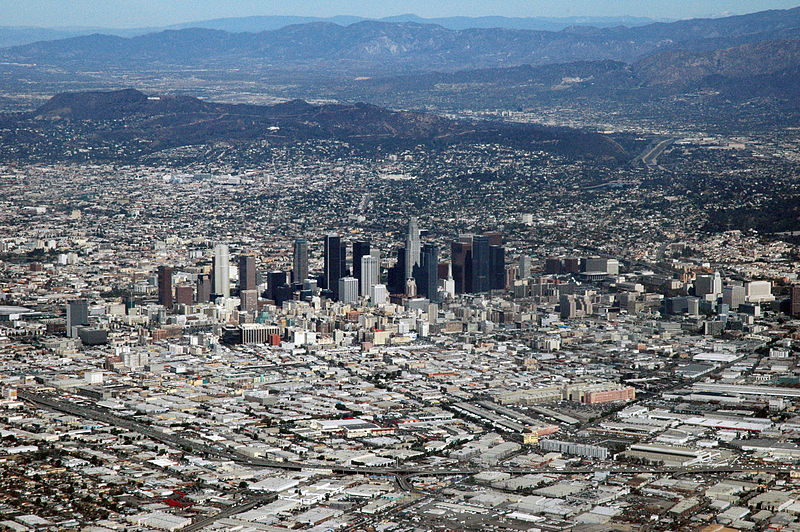This blog article was not easy to write. It does not fit easily into one specific topic heading. It covers politics, economics, ecology, culture, and even psychology. It is being posted the day after the conclusion Senator Barak Obama’s historic presidential campaign. President-elect Obama has made a great achievement, and we should all wish him well. I say this, in part, because after the usual (abbreviated?) honeymoon period in early 2009, President Obama will face some of the most intractable economic problems facing any US president in living memory.
The most immediate problem is the US economy, in relation to the global economy. What most Americans have so far failed to realize is that—in the long-run—the domestic economy is a direct function of global “ecology.” It is a function of the Earth’s natural processes, which human beings occasionally harness for their own (political and economic) ends.
Most of us have been trained to think in terms of the overlapping domains of “The Market” and “Technology.” Both The Market and Technology have come to be viewed of the creators and saviors of so-called “modern” civilization. However, both The Market and Technology are based upon an ecological and environmental platform that has seldom been acknowledged in either the popular media or the academic media. Nowhere has this problem become more glaringly apparent than in the role of the natural resource oil, in relation to the global economy. And this is, in turn, is captured under the heading of “Peak Oil,” which has to do with dwindling oil supplies, worldwide.
What is Peak Oil?
Peak Oil doesn’t mean running out of all the oil in the world; it merely means running out of all the cheap oil—which is where we are today. Trying to make this idea clear can be tough, sometimes. Considering that neither “the market” nor “technology” will help replenish the Earth’s finite oil supply, Peak Oil is an especially tough issue. Finally, Peak Oil can be a tough sell in the Black community in particular, in terms of convincing some of our leaders of the gravity the current situation presents. Just a few months ago, in an important gathering by a prominent member of our own community here in the Los Angeles area, we were told that “energy and environmental issues are not ‘Black’ issues.” What could be inferred here is that David Miller (my collaborator on this issue) and Blaine Pope might spend their valuable time focusing on “more relevant issues,” like the price of food, housing, and health care in Los Angeles.
What the prominent community member failed to grasp was that the price of food, housing, and health care (along with most other commodities and services) are all directly related to energy prices in general, and world oil prices in particular. Our on-going challenge has been to help our people see that events in oil-producing countries like Saudi Arabia, Nigeria, and Venezuela (and even in the oil-producing regions of the United States) are directly related to the prices of every day goods in Los Angeles, and elsewhere in the State of California.
Shock, Denial, Anger: What Should We Do?
In the summer of 2008, we were “shocked” at the price of both gasoline and groceries. We have been in “denial” as to the root causes (with “Big Oil” conspiracy theories running rampant). And we continue to remain “angry” at a social, political, and economic system which remains at best insensitive to the needs of many of our most vulnerable citizens.
The first thing we have to do is understand. We must understand not only what is taking place around us, but also within us. Human psychology plays an important role. According to the late Dr. Elizabeth Kübler-Ross, human beings will cover a gamut of emotions when confronted with a sudden and profound sense of loss. Many discussions of Peak Oil are often related to a sense of loss, of what we will have to give up. This process, or cycle, is often referred to as “The Grief Cycle.” Involves seven distinct emotional stages which can be broken down as follows[i]:
- Shock: Initial paralysis at hearing the bad news.
- Denial: Trying to avoid the inevitable (reality).
- Anger: Frustrated outpouring of bottled-up emotion.
- Bargaining: Seeking for a way out (often in vain).
- Depression: Final realization of the inevitable (reality).
- Testing: Seeking realistic solutions.
- Acceptance: Finally finding the way forward.
It is also not uncommon for people to move back and forth, between the various stages, in a meandering fashion (a la “three steps forward, two steps back”). This can happen for a while, until the sheer weight of either evidence” or “circumstance” forces the human mind into “acceptance.” As individual people can go through these stages, so can entire communities and societies.Our sense is that American society is now meandering between shock, denial, and anger—with the likes of the lame duck Bush Administration (and conservative media outlets like Fox News Corp.) cynically leading the charge, in both denial and anger over much of the past eight years. Most of us have not yet begun to approach even the bargaining and depression stages, let alone the testing and acceptance of our predicament.Work for Change: Fight the Power!The second thing that must be done is to get at the root of the problem.
The Root of the Problem
The real fight is not against some far off, illusive and shadowy figment called “Al Qaida.” The real fight is also not against so called “Big Oil,” either. The real fight starts with you, me, our relationship with our political leaders--and most importantly--our collective consumption habits. At roughly 4% to 5% of total world population, US citizens consume approximately 25% of the world’s petroleum every year.China, on the other hand, with almost 20% of the world’s population, presently consumes about 8% of world petroleum; moreover, the Chinese say that they are morally entitled to a corresponding 17% to 18% of world petroleum. Sounds fair, doesn’t it? The only problem is that there is not enough extra oil in the world to meet China’s stated or desired goals.
Some nations or regions of the world would have to give up their some of their access to oil. This global situation will likely be the source of much conflict in the near-term future—as region after region, and nation after nation, perhaps even city after city, will vie against one another in a scramble for what’s left in global petroleum reserve.Our main goal in the US should therefore be to efficiently and equitably “Power Down”—both globally and locally. We must learn to do with less and “live normally”, in terms of our energy consumption patterns.
Examples of this would include more aggressive action in the following areas: car pooling; walking and bike riding; urban gardening and patronizing of local farmers markets; recycling of virtually everything possible; canning and old school-type food preservation techniques; and possibly even hand washing and drying our clothes. As unpleasant as these things may seem, billions of people around the world have lived like this for a long, long time. We should not be so naïve to think that this “simplification” of our way of life is impossible. In fact, within the next decade (if not sooner) much of it actually probable!
But, there are also legitimate equity and access issues to be addressed here. Peak Oil is an indiscriminant global phenomenon that will affect both the rich and the poor. However, in today’s hard economic times, can we realistically ask the poor to tighten their belts further, while the US “retools” its infrastructure for a more green and energy-efficient future? This is perhaps another topic for another article; however, we must build in equity issues (and environmental justice issues) into any set of alternative energy proposals and planning.
Planning for an Uncertain Future
We believe that planning at various levels of governance across both the public and private sectors is key. We must begin to think ahead. We must prepare ourselves—our state, city, and individual communities—for not being able to transport or produce the goods and services to which we have become so accustomed.
Approximately a hundred and fifty years ago and more, manual labor of African origin based in the fields of the South helped America become a global power. One hundred years ago as a result of the industrial revolution, and even more so after World War II, America stayed on top because machines that ran on oil made us even more productive. Now we foresee the end of the Age of Oil and it’s time to start doing virtually everything differently in response—and preferably in advance.
Question: If you were living in New Orleans, and you “somehow knew” Hurricane Katrina were coming a month ahead of time, what would you do?
You would either move out of the way or protect yourself and your stuff in every way possible. Why wouldn’t this same rationale be applicable here? As people are beginning to drive less, why aren’t we also building more buses in the City of Los Angeles, for example? Why aren’t we making cars that pollute less and are more fuel efficient? Why aren’t we manufacturing and then installing solar panels all over this city where it seemingly “never rains”? Why aren’t we creating neighborhood cooperatives to barter fruits and vegetables, perhaps in exchange for other people’s trade skills and services?The Storm of Peak Oil Looms on the Horizon
Again, we should all be proud of what we have recently achieved, as a community, in terms of seeing our brother Barak in the White House. As African-Americans, we have a long history of struggle in the political sphere, from which many Americans have benefited. We have been somewhat less adept at linking political factors to economic factors. More challenging still is in making the linkage between economic factors and ecological factors. In these areas we have been woefully blind, silent, and dumb. But we cannot afford to remain blind, silent, and dumb any longer: let Hurricane Katrina be the template for the future, perhaps. The political, the economic, and the ecological are linked. We must now sound the clarion call and warn our people. From the Valley to Compton, from Baldwin Hills to Nickerson Gardens, we have to pool our resources: we must pool our human, material and financial resources alike, and prepare ourselves.
There is No Time to Waste
After the short-term euphoria of Barak’s election wears off, we will still have our long-term economic grief to face. Nelson Mandela’s rise to power in formerly Apartheid South Africa is a potential harbinger of this—wealth and race are still highly correlated.
But no condition is permanent. In terms of our economic “Grief Cycle”, after our shock, denial and anger wears off, we must begin to move past bargaining, through depression, and toward testing and acceptance. Acceptance of our situation is what we must achieve, so as to bring about rational public policy and culture change, focused both on consuming less and sharing society’s burdens more equitably. Call this “socialism” if you will, but the reality is that the neo-liberal, capitalist, free market status quo has failed us (most of us, anyway) quite miserably. Ultimately, in concrete terms, that means we must quickly begin testing new ways of living, and accept the idea that our collective future started yesterday.
Blaine D. Pope








